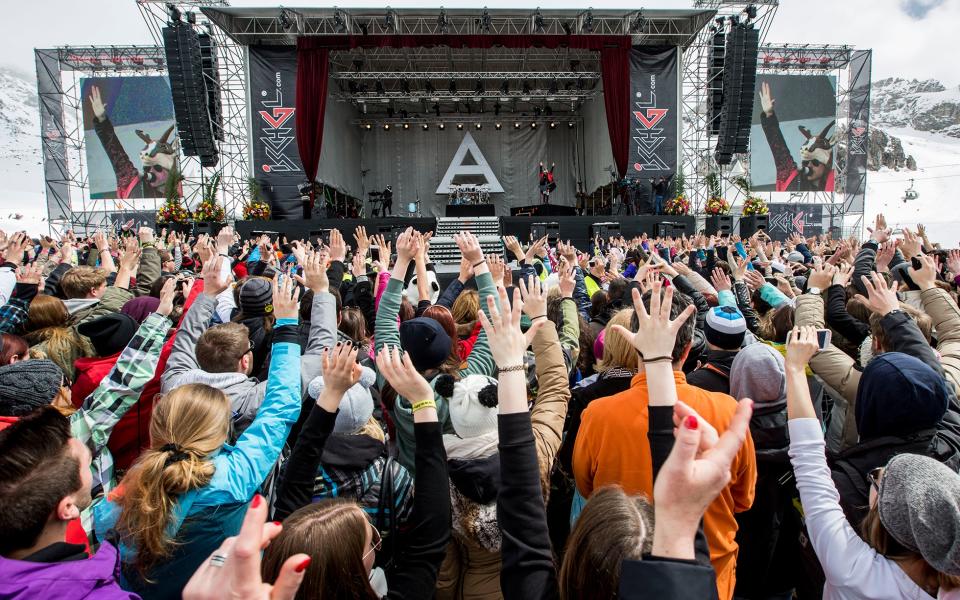'No standing, dancing or singing' – Après-ski is off the menu as Austrian government clamps down

Skiers and snowboarders will be forced to find entertainment elsewhere this winter as bars in ski resorts have been highlighted as a breeding ground for the virus
Après-ski in Austria is set to be drastically different this winter as the Government outlines new rules to rein in the country’s popular off-the-slope parties.
Gone are the days of dancing on tables in crowded bars. Instead après-ski venues, such as those in popular party destinations St Anton, Iscghl and Sölden, will have to adhere to new capacity restrictions and skiers must be seated at tables, both in and outdoors.
“There will be no après-ski as we know it from earlier times,” Tourism Minister Elisabeth Koestinger told a news conference this week.
“Standing, dancing, singing while densely packed in small bars or under-umbrella bars is a potential source of infection and we are distancing ourselves from it,” she said.
Après-ski is a popular part of the ski holiday experience, with venues such as the Mooserwirt in St Anton and the chain of La Folie Douce bars across the French Alps attracting huge crowds for daily parties, live music and wild dancing throughout the season. However such venues are thought to have been the breeding ground for the virus.

There are a number of music festivals that also take place in the mountains. Snowbombing, which returns to the Austrian resort of Mayrhofen annually, has already announced that festival goers who are used to the event’s notoriously wild après antics can expect a change of pace.
“Snowbombers are encouraged to make the most of the stunning mountain vistas that Mayrhofen has to offer and fully embrace local culture, cuisine, and a whole host of on and off piste activities on offer for 2021,” read a statement from the festival.
The news comes as Austria battles to bring a second wave of infections under control. Daily cases in the Alpine country are as high as they were in late March, before Austria, and much of the rest of Europe, went into national lockdown.
While Austria still remains on the UK’s ‘red list’ of countries to which the FCDO advises against all non-essential travel, this week Germany has reissued a travel warning for the Austrian provinces of Vorarlberg and Tyrol, home to some of the country’s leading ski resorts including British favourites Lech and St Anton as well as Kitzbühel, Mayrhofen and Obergurgl.
In the province of Tyrol, four civil lawsuits have been filed against the Austrian government over the outbreak of coronavirus in the popular resort of Ischgl. The private Consumer Protection Association (VSV) argue that authorities in the Tyrol reacted too slowly to the outbreak, mishandled the response and possible gave in to pressure from the tourism sector not to act. While initially it was reported that the first case was detected in Ischgl on March 7, Austria’s public health agency has since said it believes it was much earlier, on February 5.

In March Ischgl hit headlines after a cluster of cases were linked to the après hot spot of the Kitzloch bar and restaurant. Hundreds of Austrains are thought to have contracted the virus there, plus thousands of foreign visitors including the UK’s patient zero.
This has forced resort bosses to announce that the region will be cleaning up its act and focussing on “greater quality” rather than “party tourism” in the future. Following the Government’s announcement this week resorts in the rest of the country, all of which are planning to reopen on schedule for the upcoming season, will be following suit.
“Skiing pleasure yes, but without après-ski,” said Austrian Chancellor Sebastian Kurz.


